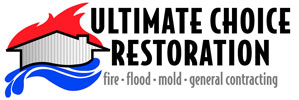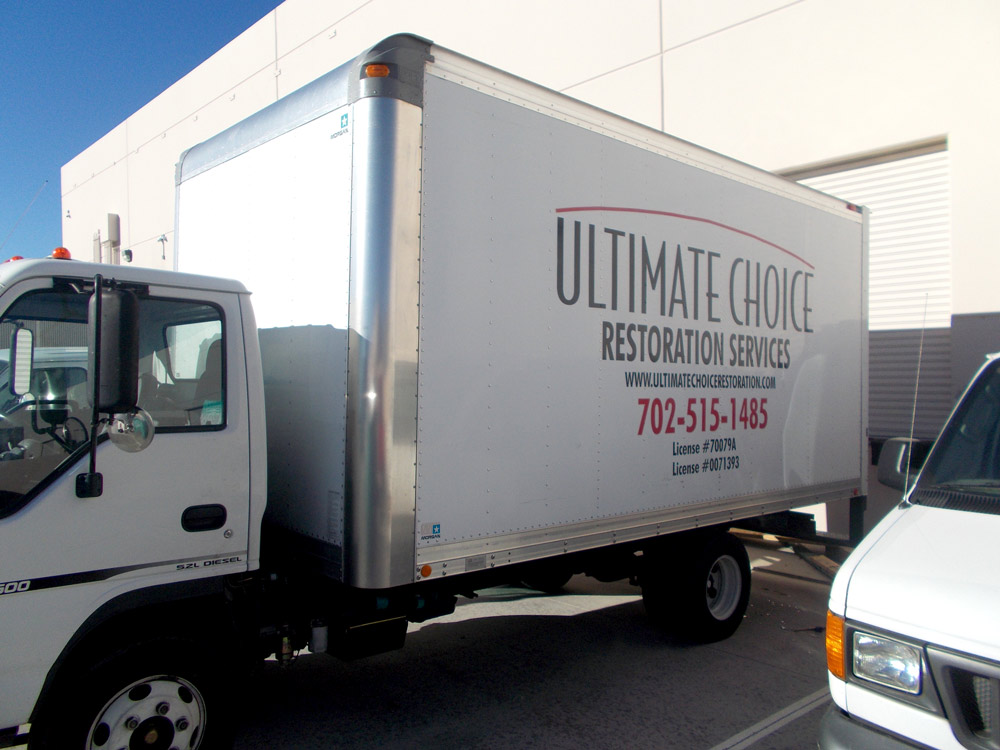The different types of home/condo insurances
HO-1 Known as Basic Home Owners Insurance
This covers your dwelling and personal property against damages or losses including fire and lightening, theft, vandalism or malicious mischief and windstorm.
HO-2 Known as Basic Homeowners Insurance Plus
HO-1 is included in this kind of categories plus other damages such as falling objects, electrical surge damages, 3 categories of water related damages from utilities or appliances, weight of ice snow.
HO-3 Known as Extended or Special Homeowners Insurance
17 stated perils included in this categories of HO-2. This provides extensive coverage of your home like the structure and the content inside your house. This part of your homeowners insurance also known as All Risk Policy.
HO-4 Known as Renter Insurance
This kind of insurance cover the personal property only from the 17 HO-2 perils in which this policy are highly recommended for people renting an apartment which is also called as Renter’s Policy.
HO-5 Known as All Risk
Covers building and the personal property and is something similar to HO-3 but it differs in terms which have better protection than HO-3. This area of damages or losses with wider boundaries that owners and its properties as well is liability that might arise from passer -by or outsider.
HO-6 Known as Condominium Owners Insurance Coverage
This is designed for condominium owner’s which covers personal property, building items, etc. and this provides protection for claims made for mishap or damages occur. Fire, thefts and other forms of loss that will occur in the future is included.
HO-8 Known as Basic Older Home Coverage
Covers actual cash values or repairs in rebuilding cost and personal property where in this is designed for older house or so called historical house.
Typically, insurance covers damage to the dwelling and your possessions from certain named dangers, such as fire, lightning, explosion, windstorm, hail, riot, civil disturbance, theft, vandalism, smoke, falling objects and damage from aircraft or vehicles. “This is called Broad Form insurance,”
There’s also Special Form insurance that covers the same risks of damage to personal property that you list in detail. Covering your personal property is something that always should get special attention in a condo or renters policy. While the cost of carpeting, furniture and appliances is generally simple to calculate, things like jewelry, electronic equipment, computers and antiques, for example, can be very subjective. Anything of particular value should be discussed with your agent, appraised if necessary and listed in your policy.
Third, a Comprehensive Form covers all risks, protecting your property against everything that is not specifically named. It covers more eventualities and it’s more expensive.
Basic Insurance Advice
- Carefully consider the limits on coverage. Know what you are buying and what you can expect if disaster happens. Don’t find out the hard way, after the loss has been incurred.
- Get replacement insurance, NOT actual cash value coverage, which is basic and cheaper. With replacement insurance, your goods will be replaced at today’s costs. With actual cash value coverage, you will be reimbursed what you paid, minus ‘depreciation’ because they’re considered used. (Think what a used computer is worth.)
- Don’t forget to include liability coverage. If an electric light or romantic candle sets your home on fire, you could be responsible. The landlord or condo association might well have insurance coverage, but if you’re negligent, they could come after you.
- Consider coverage for what’s called ‘loss of use,’ which covers the costs of a motel or other temporary accommodation if you’re forced out of your home by, for example, a fire. It’s usually limited to 20 percent of the personal property limits on your policy. If you had $20,000 worth of personal property coverage, your loss of use payout would be up to $4,000.
- Policy costs, types of coverage, and limits vary enormously by region, company and client. To help control costs, ask your insurance company what discounts are offered for such things as installing smoke detectors or dead bolt locks, insuring your home and your car with the same company, and living in a non-smoking household. Raising your deductible helps, too. A higher deductible — the amount you pay for yourself before the insurance kicks in — can save up to 30 percent of the annual premium you pay.
Click here to read more.
The 5 basics of condo insurance part 1 – dwelling coverage
Insurance companies offer Dwelling Coverage, which generally insures the interior walls, drywall, wallpaper, paneling, flooring, carpeting, or built-in cabinets. This is the coverage you need to cover your part of the building; the unit you own.
As a condo association, you all take responsibility and ownership for the common areas, the exterior of the building, and energy equipment. The interior of your unit, however, is your responsibility, and it is important to make sure your real estate investment is protected.
Note: Some condo “Master Policies” provide all-in coverage. This means the entire building, including your unit, are covered. Check your condos Master Policy and find out if it covers your individual unit. If the Master Policy doesn’t cover your unit, you need individual Dwelling Coverage.
Dwelling Coverage usually covers damage resulting from:
- Freezing of plumbing
- Accidental discharge or overflow of water from your plumbing
- Fire and lightning
- Explosions
- Theft, vandalism and malicious mischief
- Sudden, accidental damage from smoke
- Weight of snow, ice and sleet
- Sudden, accidental tearing, cracking, burning or bulging of a steam pipe or hot water heating system
**Flood and mold coverage is additional and you need to ask for it. It is NOT typical coverage.
Dwelling Coverage does NOT cover damage caused by:
- Earthquakes
- floods
- and in many states, hurricanes. (If you want to insure your condo against these risks, you may be able to buy an additional policy or endorsement for each of these.)
- Theft by someone named on your condo policy as an insured party.
The 5 basics of condo insurance part 2 – personal property
There are a couple ways to determine how much coverage you need. The question is difficult: what is the replacement cost of everything you own? Most often, homeowners undervalue their property and end up under-insuring their property.
One method is to individually value each item in your home. This means taking an entire inventory of your home, and assigning a value to each item. Many homeowners also like to take pictures, or even a video, of their home to keep on file in case of a loss.
Another method of determining your personal property value is to use a simple multiplier. As a rule of thumb, for the first 1,000 square feet of your condo, assume $40,000 in personal property. For each additional 500 square feet, add approximately $5,000 in coverage.
Example: If your unit were 1,500 square feet you would want to consider purchasing $45,000 in personal property coverage.
Unless otherwise specified, Coverage C – Personal Property Coverage is for actual cash value at the time of loss, which is the replacement cost of the item, minus depreciation. Buying an endorsement can increase this coverage.
Do you need more than actual cash value coverage for your personal belongings? We recommend replacement coverage for your personal property, rather than actual cash value. If you purchased most of your belongings a few years ago, their current depreciated value may be a lot less than what it would take to replace them.
If you have personal property such as firearms, jewelry, furs, antiques, collectibles, fine artwork, musical instruments or office equipment, you may need additional coverage. A standard condo policy usually has specific dollar limits for items like these. You can add or increase coverage amounts with an endorsement or additional policy.
Personal property includes everything you own in your home. Furniture, TVs, computers, rugs, clothing, books, cookware, etc. Everything that is not attached to your condo is personal property and it should be insured. See our home inventory page for details about documenting your personal property.
The 5 basics of condo insurance part 3 – loss of use
If a loss occurs and your home is damaged, it will take some time to renovate your home. During this time, you will probably need somewhere else to live while the work is being done. How will you pay for additional living expenses while your condo is being fixed?
Loss of Use Coverage will insure you for temporary housing expenses such as an apartment rental. Loss of Use Coverage will also cover things like furniture, car and boat storage, and even pet kennel expenses.
Loss of Use coverage usually has a limit based on a percentage of the personal property limit, often around 40%. For example: if you insure personal property for $30,000, your Loss of Use Coverage limit would be $12,000 (40% of $30,000).
The 5 basics of condo insurance part 4 – personal liability coverage
One of the most important parts of a condo insurance policy is the Personal Liability Coverage. This will cover you against lawsuits, legal expenses, and medical costs if you are legally responsible for injury or property damage to others. The coverage here is variable, but most insurance professionals recommend $500,000.
The 5 basics of condo insurance part 5 – medical payments
If a person is injured in your condo and they are not named on your policy, this coverage would pay for some minor medical treatment, such as exams or X-rays. Generally, this coverage is fairly low, but provides the insured with means to cover minor medical expenses without filing a claim against the Personal Liability Coverage portion of the HO6.
Do I need Dwelling Coverage for my unit?
- As noted above, your condo building Master Policy might have coverage for your unit. Find out if you have coverage and, if so, how much coverage and at what deductible. Important note on condo docs: In some rare cases, your condo documents might say something different than your Master Policy. If your Master Policy says your unit is insured for dwelling, but your condo docs say otherwise, the condo docs win. A claim adjuster would default to what the condo docs say, and you wouldn’t have coverage. Make sure your condo docs state the same coverage as your Master Policy.
- If you have no coverage with your building policy, you should purchase dwelling coverage for the full replacement amount. Even if your building Master Policy provides some coverage for your unit, most condo owners still like to take out dwelling coverage for their specific unit, often around $10,000 with a $500 deductible. This is due to master policy limits, high deductibles, and condo document discrepancies (see above).
Renters Insurance: It Protects You From Liability
Renter’s insurance also often covers you from many types of liability — such as someone getting injured in your home, damage you cause to another person’s property (you mess up the neighbor’s house), and housing costs if your own home becomes uninhabitable.
You may not feel like renters insurance is necessary. However, everyone who rents an apartment or house can benefit from this type of coverage.
Many people dismiss renters insurance, claiming that their belongings aren’t valuable enough to insure. But a renter’s policy covers more than just the contents of your home. It also includes liability coverage in case someone injures themselves on the premises or your landlord claims that you have damaged the property in some way.
Keep in mind that actual value coverage is vastly different than replacement value coverage. If you have an old sound system that you bought for a pretty penny back in 2000, it may not be worth much in actual value. If you have to replace that sound system, it will probably cost more. Make sure you know if you are covered for actual value versus replacement cost. You want replacement cost.
The one nice perk about renter’s insurance is that it covers your possessions even if the damage occurs outside of home. Let’s say you are outside and someone steals your wedding band. You are typically covered by renter’s insurance.
What Does It Cover?
Your insurance will typically cover the following:
- Electronics
- Clothes
- Furniture
- Sports Equipment
- Appliances
- Jewelry
- Collectibles
- Temporary living expenses, known as “loss of use,” if the rental unit is deemed unlivable due to damage.
- Medical expenses if someone is injured on the premises.
How Much Renters Insurance Do You Need?
Renters insurance typically has a $10,000 minimum for personal property. It’s cost-prohibitive to over-insure your belongings, so calculate the cost to replace your personal items should they become damaged or stolen, and opt for additional coverage only when necessary.
In the end, paying for renter’s insurance is worth the hassle because it protects you from a host of bad things that no one can predict. It is one of those things that no one really thinks about, but when you are in a pinch, you are glad it is there.
When Damage Occurs – Liability
The general rule in a condo is that you are responsible for anything “inside your four walls” and are liable for anything caused by your negligence (such as leaving your water running and causing a flood).
There should be something in writing that tells you the specifics as to what is considered to be common areas, and covered by the condo association , and what is considered the responsibility of the homeowner. The condo association would take care of anything that relates to the building itself, like the roof, common walkways, etc., and they should have insurance to cover those areas.
The neighboring unit that had damage will most likely have insurance of their own covering the damage. What may happen is that they will make a claim under their own policy, and then their insurance company will “subrogate” the claim on their behalf. This means that they will be able to step into the shoes of the homeowner and sue the party that is liable for the damage.
The homeowners may also have a deductible that they will be responsible for and then bring a small claims suit against the liable party to recoup that money.
You need to pull out your paperwork that you received when you purchased the condo and read the part that applies to this situation. If you are unsure or it is unclear then you should seek help from an attorney in the field familiar with these types of situations.
Do you plan on Renting Your Condo out to others?
If you plan on renting your condominium out to others, even for a short time, you should know that there is an endorsement which can easily be added to your insurance policy which provides property and liability coverage for the unit owner while the residence premises is rented to others.
Theft coverage is provided for personal property at a rented condominium; however, high value items are not covered by the endorsement. Coverage for medical payments, however, is included.
If you are planning on renting your condominium out to others, call your agent to add this endorsement.



